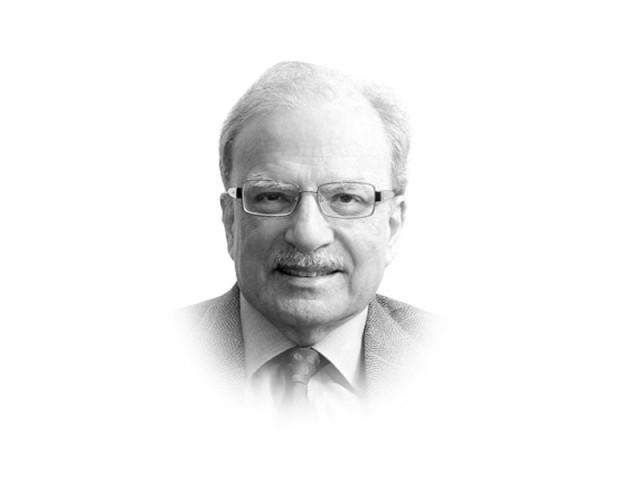Pakistan in a changing world
Like the Arabs, and the Turks, the Pakistani youth also wanted a system of governance that accommodated them

The writer is a former caretaker finance minister and served as vice-president at the World Bank
It is from this perspective that we should look at the four massive people’s movements in the Western part of the world of Islam. The first was the Arab Spring of 2011, followed by the movement in Turkey that demanded that Prime Minister (now President) Recep Tayyip Erdogan must govern without dispensing with democratic norms that had been the process of governance in the country for decades. Egypt was the scene of the third mass movement when the democratically-elected government, headed by the Muslim Brotherhood’s Mohammed Morsi, began to disregard one of the more important aspirations of the country’s youth. They wanted a political system that would be inclusive and not exclude those who did not believe in the ideological orientation of the new governing elite — the Muslim Brotherhood.
Pakistan was the scene of the fourth mass movement in the Muslim world. This was the one launched first, jointly by Imran Khan and Dr Tahirul Qadri, and later led only by the former. Once again, the young formed the vanguard and demanded what the other youth in other countries had wanted. Like the Arabs, and the Turks, the Pakistani youth also wanted a system of governance that accommodated them and their aspirations. What gave traction to the movement led by Imran and his party was the assertion that the elections held in May 2013 that brought to power the governments led by the Pakistan Muslim League-Nawaz in Islamabad and Lahore were not fair and honest. Imran’s demands have evolved overtime. After demanding the resignation of Prime Minister Nawaz Sharif, his focus had shifted to the constitution of a commission of inquiry to probe how fair the May 2013 elections were, as well as the reform of the election system. He has, in other words, moved from demanding a change of personnel at the helm of affairs to a reform of the system.
There is a good reason why a large number of people bought this argument and were prepared to tolerate the discomfort that was entailed by participation in the dharnas. They were convinced that the system of governance put in place by the elections of May 2013 had not produced the results they wanted. The perception that policymaking is dominated by a narrow elite, many of whose members are drawn from the ruling family has grown. This, in other words, is not an inclusive system but one that is highly exclusive. Being exclusive, it is not producing the results that the youth wanted when they participated with noticeable enthusiasm in the elections of May 2013.
What do the youth want that the government has not been able to deliver? Of the several things that should be counted among the most important aspirations of the youth, five are of particular importance: 1) The youth want an educational system that can prepare them for jobs in the modern sectors of the economy. Their preference would be to work in the services provided by private enterprise; 2) They want employment in the urban parts of the economy; 3) They want a reasonable amount of equality in the distribution of incomes and assets; 4) They want a government that is reasonably free of corruption. And they want a country in which they live to have the respect of the international community.
They don’t believe that these five things have been met by the government that currently holds the reins of power. The feeling exists in other parts of the Muslim world as well. For as long as this is the case, the youth will remain restive.
Published in The Express Tribune, February 2nd, 2015.
Like Opinion & Editorial on Facebook, follow @ETOpEd on Twitter to receive all updates on all our daily pieces.















COMMENTS
Comments are moderated and generally will be posted if they are on-topic and not abusive.
For more information, please see our Comments FAQ